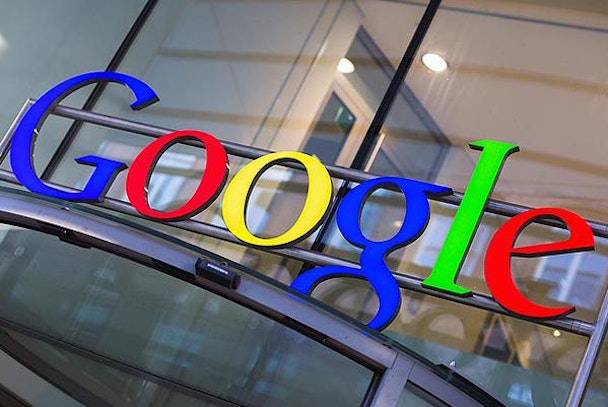Can Google tread the fine line between user experience and monetisation with video search ads?
Google is reportedly working on solutions to arrest its ongoing CPC decline by experimenting with serving video ad units within its core search offering, The Drum assesses the opportunity, and potential pitfalls amid a period of change within the world’s largest digital advertising company.


With online video advertising tipped to hit $13.8bn this year, Google is continuing its ongoing transformation by doubling down on efforts to monetise video inventory with the digital behemoth reportedly experimenting on serving video ad units within its search results.
The reports emerged this week, citing advertisers consulted over the proposed change to its search advertising offering, which would bring it more in line with the advertising offering of Microsoft’s search engine Bing, and Yahoo, which is also reported to be working on a similar offering.
The outfit has yet to publicly confirm or deny the report, but such a move would undoubtedly have a positive impact upon its average cost-per-click (CPC), which has been in continual decline for successive quarterly earnings – its overall CPC fell annually by 11 per cent in its latest earnings call.
Google’s continual average CPC decline can be attributed to a number of factors such as currency fluctuation, and its geographical mix, but most attribute it to the increase in mobile search ads, which it currently struggles to value for as much as they do desktop.
Speaking at a recent conference, Jonathan Alferness, Google’s VP of product management, said: “Most advertisers inherently place less value on mobile than they do on desktop and that is down to seeing those direct conversions on desktops whereas the conversions are harder [to see] on mobile.”
However, this trend is complemented by advertisers’ increased willingness to serve online audiences with video ad units, and introducing video advertising opportunities into its search offering – still Google’s biggest revenue-earner - makes search more appealing to brand advertisers who have historically opted for other online ad formats.
This increased demand for video advertising was demonstrated by research firm IHS forecasting that video ads will generate almost $14bn in revenue this year – growing to $19bn by 2017.
Google’s intention to fulfill this demand was unveiled last week when it emerged that Google has curbed advertisers’ access to inventory on YouTube via its DoubleClick Ad Exchange (AdX).
This move means advertisers won’t be able to buy advertising inventory via its open ad exchange AdX, and instead will have to purchase such inventory either directly from YouTube sales people, or via DoubleClick Bid Manager (DBM), or AdWords are both more closed environments compared to AdX.
The dual moves signal its strategy to ape the success of Facebook – arguably Google’s biggest rival when it comes to online advertising – which made much of its mobile and video advertising units that helped spur it towards a record quarter with earnings for the quarter topping $4bn. Although it must be added that Google’s quarterly earnings of almost $18bn for the same period dwarfed this figure.
So with the benefits of introducing video ad units to Google’s commercial operations clear, the question must be asked: what are the potential pitfalls? The answer is simple, the potential to alienate online audiences.
Online giants such as Google and Facebook are famed for their protection of the user experience, with investors often frustrated at their tendency to place this above monetisation.
Without doubt, engineers at Google HQ Mountainview will be endlessly tinkering with ad formats (be it autoplay, or require users to intentionally click on a unit), duration-length and frequency capping, etc, before such an offering is formally rolled out.
In addition, can Google make such an offering that long-tail advertisers? These are typically those with smaller budgets, but currently lie at the core of Google's search success. So can Google successfully pursue lucrative brand advertising dollars, without alienating its core consticuency?
Without a confirmed roadmap spoken about in public, these are key questions that will echo around the corridors of the world’s largest search company.

